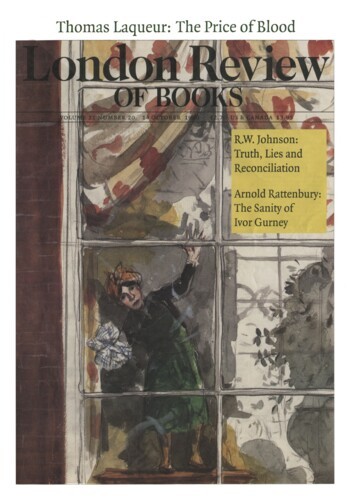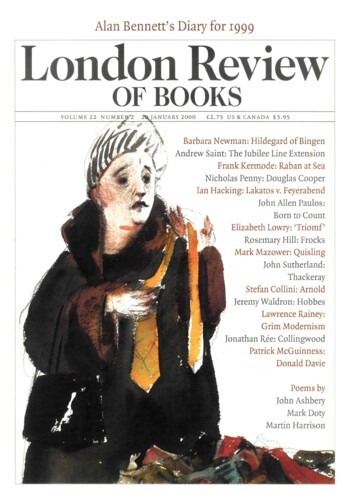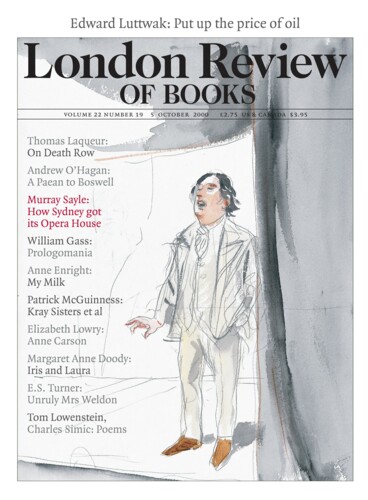Like a Dog: J.M. Coetzee
Elizabeth Lowry, 14 October 1999
‘The personal life is dead,’ Pasternak wrote in Doctor Zhivago – ‘history has killed it.’ In J.M. Coetzee’s new novel, Disgrace, which is set in a violent post-apartheid South Africa, David Lurie, a Cape Town academic, reaches a similar conclusion when his daughter Lucy is gang-raped by three black men at her isolated homestead in the Eastern Cape. ‘But why did they hate me so?’ Lucy asks. ‘I had never set eyes on them.’ ‘It was history speaking through them,’ her father replies. ‘A history of wrong. Think of it that way, if it helps. It may have seemed personal, but it wasn’t.’ Lucy decides not to press charges, believing that this rape, in the South African context, is not ‘a public matter’. In the face of irresistible historical change – the collapse of a corrupt order – the claims of the individual are necessarily of secondary importance, even irrelevant. Pasternak, of course, did not believe this. Does Coetzee?’‘



